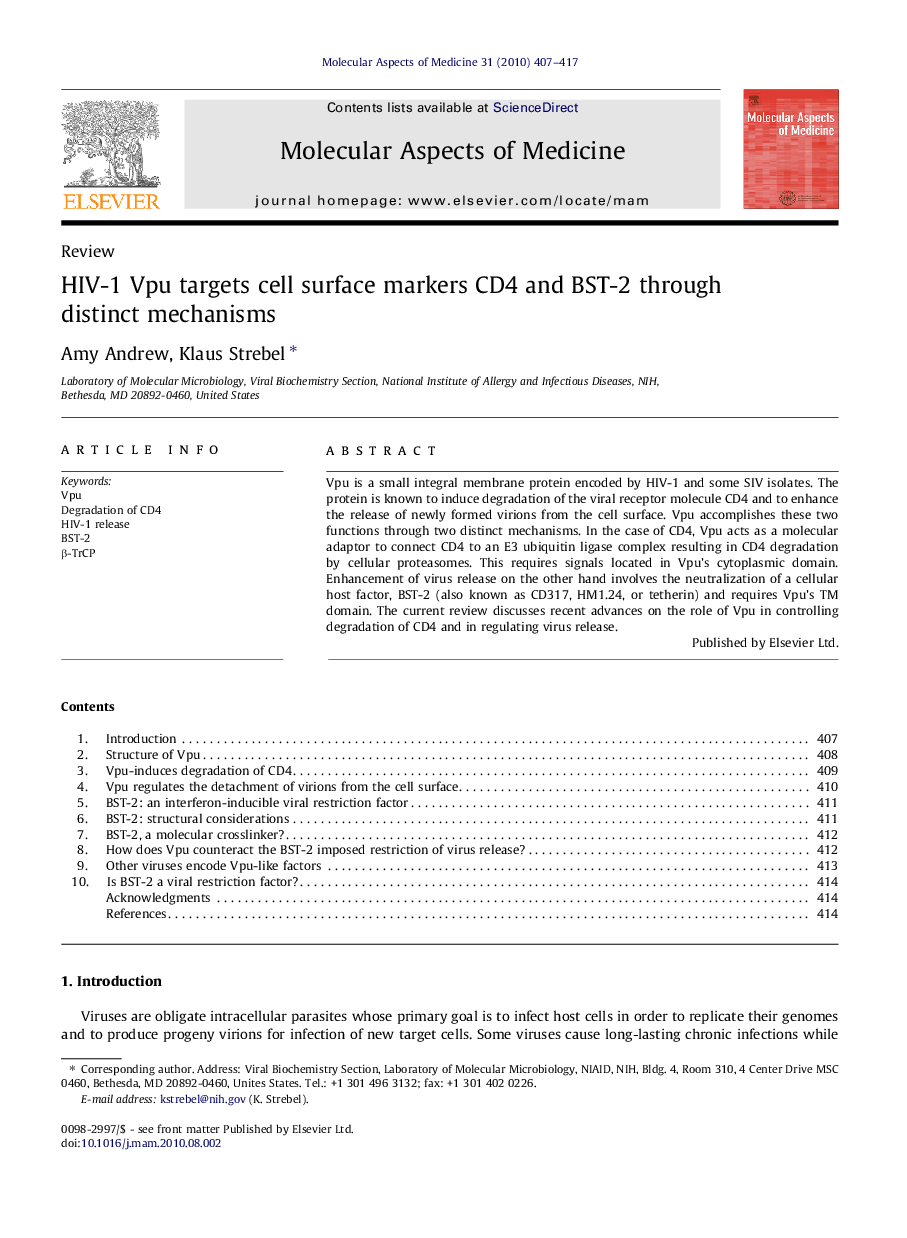| Article ID | Journal | Published Year | Pages | File Type |
|---|---|---|---|---|
| 1995778 | Molecular Aspects of Medicine | 2010 | 11 Pages |
Vpu is a small integral membrane protein encoded by HIV-1 and some SIV isolates. The protein is known to induce degradation of the viral receptor molecule CD4 and to enhance the release of newly formed virions from the cell surface. Vpu accomplishes these two functions through two distinct mechanisms. In the case of CD4, Vpu acts as a molecular adaptor to connect CD4 to an E3 ubiquitin ligase complex resulting in CD4 degradation by cellular proteasomes. This requires signals located in Vpu’s cytoplasmic domain. Enhancement of virus release on the other hand involves the neutralization of a cellular host factor, BST-2 (also known as CD317, HM1.24, or tetherin) and requires Vpu’s TM domain. The current review discusses recent advances on the role of Vpu in controlling degradation of CD4 and in regulating virus release.
